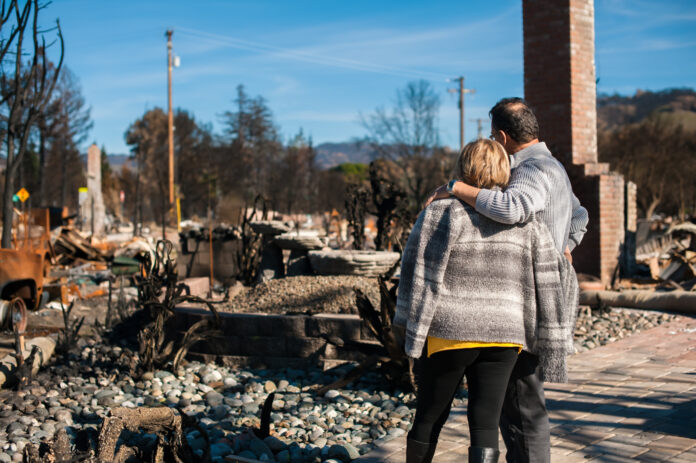
California Insurance Commissioner Ricardo Lara’s plea for simplified wildfire claims falls on deaf ears as insurance companies resist full compensation.
At a Glance
- Lara urges insurers to provide full personal property coverage without detailed inventories
- Only a few companies, including Pacific Specialty and Chubb, comply with 100% coverage
- Over 30 wildfires have ignited around Los Angeles since January 7
- Major insurers like State Farm are limiting coverage due to increased fire risks
- California faces a potential insurance crisis with losses estimated up to $45 billion
Lara’s Push for Simplified Claims Process
California Insurance Commissioner Ricardo Lara is taking a stand for wildfire victims, demanding that insurance companies provide full compensation for personal property losses without requiring detailed inventories. This move comes in response to the recent Los Angeles wildfires that have devastated communities and left many homeowners struggling to rebuild their lives.
Lara’s request goes beyond the current law, which mandates insurers to pay at least 30% of a dwelling policy limit, up to $250,000, for total loss homes. The commissioner is pushing for up to 100% coverage without the need for itemized lists, recognizing the immense burden placed on victims during an already challenging time.
Insurance Companies’ Mixed Response
Despite Lara’s efforts, the response from insurance companies has been mixed. Some insurers, including Pacific Specialty, Chubb, Cincinnati, and Lloyds of London, have stepped up to provide 100% coverage without requiring itemization. However, many others continue to resist this change, offering only limited compensation and insisting on detailed inventories.
“It is inhumane to require wildfire survivors who have lost everything to list every item of personal property in order to receive the full replacement cost under their policies – they need to focus on the larger task of rebuilding their lives.” – Ricardo Lara
This resistance from insurance companies is exacerbating an already precarious situation in California’s insurance market. Major insurers like State Farm and Allstate have stopped selling new property insurance in the state due to wildfire risks, leaving many homeowners with limited options for coverage.
The Wildfire Crisis and Its Impact
The recent Los Angeles wildfires have ignited over 30 fires since January 7, highlighting the ongoing threat faced by California residents. These disasters have not only destroyed homes and displaced families but have also exposed the vulnerabilities in the state’s insurance system.
“This process is beyond painful…to sit there with a spreadsheet at such a devastating time and to be reminded, item by item, of what you lost when your home is gone is beyond comprehension … if you can even remember everything that you had. A total loss is a total loss. It feels like the insurance companies are trying to break our collective will, so we give up and they don’t have to pay out.” – One Palisades resident
The California FAIR Plan Association, the state’s insurer of last resort, is facing a potential crisis with losses from the LA wildfires estimated at up to $45 billion. This situation underscores the urgent need for reform in the insurance industry to better protect homeowners in high-risk areas.
Legislative Action and Future Outlook
In response to the wildfire crisis, California lawmakers have introduced numerous bills aimed at addressing insurance issues and wildfire response. These include measures to protect fire insurance policyholders and improve firefighter cancer screenings. However, the effectiveness of these legislative efforts remains to be seen.
As California grapples with the consequences of climate change and increased wildfire risks, the insurance industry must adapt to meet the needs of affected homeowners. Commissioner Lara’s push for simplified claims processes is a step in the right direction, but it’s clear that more comprehensive reforms are needed to ensure the long-term stability of California’s insurance market and the protection of its residents.






















